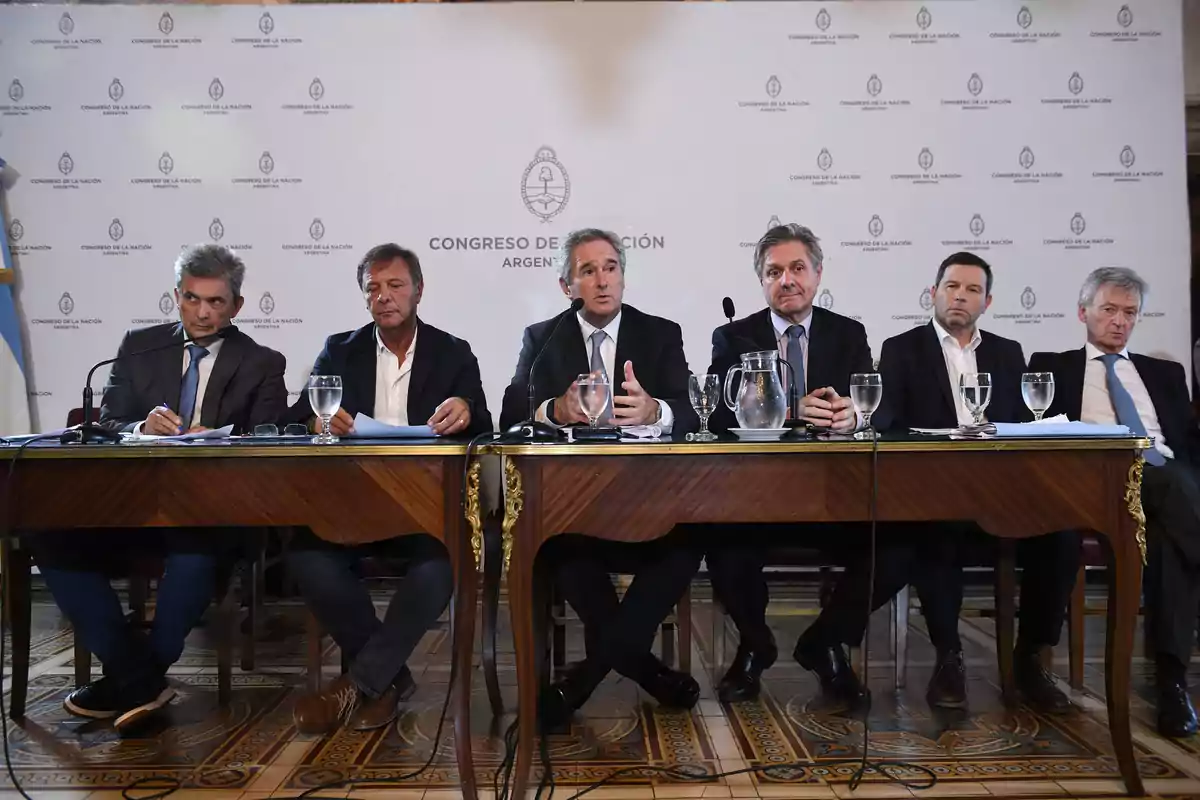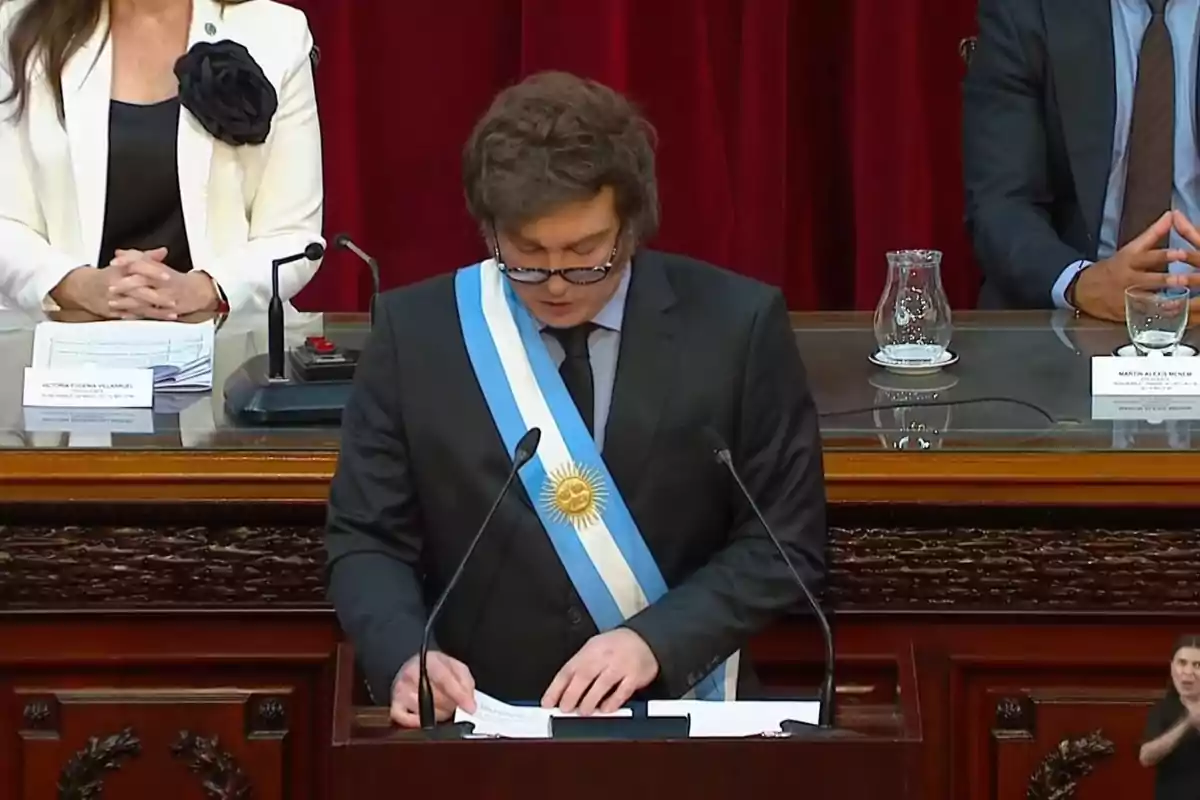
Agreement with the IMF: The Government obtained favorable approval in the Bicameral DNU
La Libertad Avanza obtained a ruling in the Bicameral. Now it will seek to approve the DNU in the House of Representatives
In a day marked by intense negotiations and a new setback for Kirchnerism, the ruling party of Javier Milei achieved a essential step on Monday for the approval of the Decree of Necessity and Urgency (DNU) 179/25, which will allow the Government to access a new loan with the International Monetary Fund (IMF).
The Bicameral Legislative Procedure Commission, after a tough debate, managed to unlock the voting of authorities and issue the favorable opinion that will allow the decree to be addressed in the Chamber of Deputies this Tuesday at 10 in the morning.
The session in the Bicameral began with a struggle over the leadership of the body. La Libertad Avanza (LLA) insisted that Senator Juan Carlos Pagotto continue in the presidency, but the opposition, led by Unión por la Patria (UxP), blocked the initiative, arguing that this year the presidency should fall to Deputies.
In a tight vote (8 to 8), the deadlock was solved with a strategic move by the ruling party: Senator Francisco Paoltroni, who initially supported the opposition candidacy of Nicolás Massot, proposed Oscar Zago (LLA) as an alternative. With the support of PRO and UCR, Zago prevailed, securing the presidency for the ruling party.
The dispute continued over the vice presidency, where Anabel Fernández Sagasti (UxP) was defeated by the radical Víctor Zimmerman, a key ally of the Government. Thus, the Bicameral remained under control of the ruling party and its allies, unlocking the possibility of advancing with the opinion.

Among the signatories in favor were Juan Carlos Pagotto (LLA), Víctor Zimmerman (UCR), Luis Juez (PRO), Carlos Espínola (Provincias Unidas), Lisandro Almirón (LLA), Diego Santilli (PRO), Francisco Monti (UCR), Oscar Zago (LLA), and Francisco Paoltroni. The opposition, meanwhile, signed a rejection opinion, while Nicolás Massot chose not to adhere to either.
The core of the discussion revolved around the details of the agreement with the IMF. The opposition, led by Anabel Fernández Sagasti, attempted to discredit the DNU by arguing that the Government "authorizes new indebtedness without going through Congress."
However, the Secretary of Finance, Pablo Quirno, clarified that the decree complies with current regulations and responds to the urgency of ensuring economic stability.
Quirno, joined by the Secretary of Economic Policy, José Luis Daza Narbona, and the Argentine representative to the IMF, Leonardo Madcur, emphasized that the agreement with the Fund doesn't require devaluations or harmful adjustments for the population, refuting UxP's accusations.
Faced with persistent questions from the opposition about the loan conditions, the official highlighted that there are "undefined situations," which caused new criticisms from Kirchnerism, which seeks to obstruct any progress by the Government in economic matters.

Meanwhile, the Unión por la Patria bloc attempted to pressure with a letter sent to the IMF, where they expressed their rejection of the agreement and threatened to disregard the debt if they return to power. A move reminiscent of the failed attempts by Kirchnerism to detach from the indebtedness caused during their own administrations.
Path to approval
With the opinion approved, the ruling party now faces the challenge of ensuring the quorum and the votes in the Chamber of Deputies.
Projections indicate that La Libertad Avanza and PRO have 76 deputies, plus 6 from the Civic Coalition, 20 from UCR, 8 from Federal Innovation, 3 from Independence, 3 from MID, 2 from Production and Labor, in addition to smaller benches like CREO, MPN, United Republicans, Somos Fueguinos, and Transformation.
Additionally, support is expected from between 6 and 9 deputies from Federal Encounter and three from Democracy Forever, which would allow the ruling party to reach between 130 and 134 votes, surpassing the minimum required for quorum.
If this strategy consolidates, Javier Milei's Government will achieve a new milestone in its economic recovery plan, ensuring the necessary financing to advance with the structural reforms the country needs.
On Wednesday at noon, Argentina could have a new agreement with the IMF approved, closing a key chapter in the country's economic policy and confirming that, despite the opposition's attempts to halt change, the ruling party continues to set the course.
More posts: